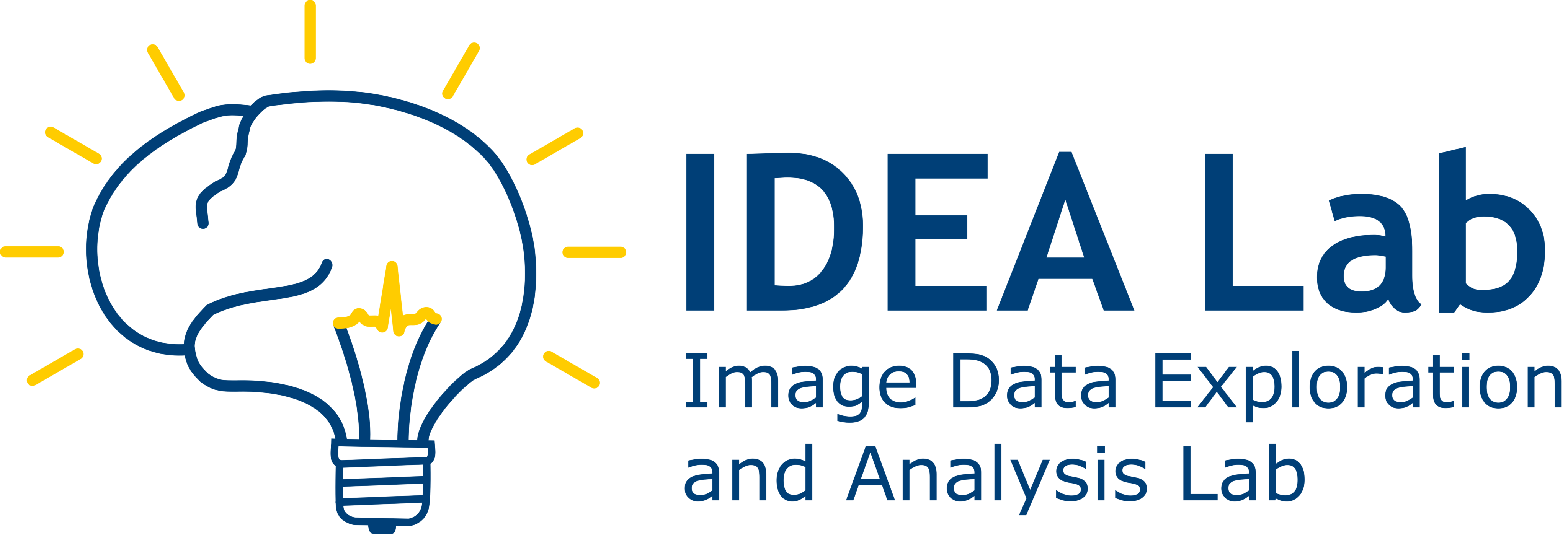Research Assistant (PhD Student) or Postdoctoral Researcher (TV-L E13 – 100%) starting 1 April 2023
The Image Data Exploration and Analysis Lab (https://www.idea.tf.fau.eu/) at the Department Artificial Intelligence in Biomedical Engineering (AIBE) has an exciting opening to be filled as soon as possible for
Research Assistant (PhD Student) or Postdoctoral Researcher (TV-L E13 – 100%) starting 1 April 2023
in the research field of Deep Learning for Medical Image Analysis with a fixed-term full-time employment and secure options for future contract extensions. An opportunity for further scientific qualification (PhD/Habilitation) is given and supported.
The successful candidate will work with real healthcare data to derive disease state labels using advanced data-driven methods leveraging both medical images and patient records. There is potential to explore self-supervised methods as well as category theory and symmetry-exploiting methods with noisy and missing labels, including work on domain adaption challenges and/or human-in-the-loop approaches.
The successful applicant will be part of the Image Data Exploration and Analysis (IDEA) lab @AIBE_FAU, which is the research group of Prof. Bernhard Kainz. We have pioneered new methodological developments in the field of medical image analysis and machine learning as evident from several international awards, prizes, and best paper awards. The group is internationally renowned for its research in medical deep learning, which has been proved by publications at top conferences (MICCAI, CVPR, ECCV) and in prestigious journals (IEEE TMI, Medical Image Analysis, npj Nature Digital Health, The Lancet, etc.).
Responsibilities:
- Active contribution to the research mission of the Image Data Exploration and Analysis (IDEA) lab @AIBE_FAU, incl. communication with project partners
- Presentation and publication of results at international conferences and in high-ranking journals in the field of Medical Deep Learning
- Co-organisation and of a MICCAI Workshop (Vancouver 2023)
- Support in the supervision of student projects (BSc, MSc, PhD)
- Willingness to support teaching (depending on skill set and circumstances, the post might be co-funded by the University, which provides the opportunity for delivering 5 SWS of teaching.)
Necessary qualifications:
- Master’s / PhD degree in computer science, mathematics, or similar
- Profound knowledge in machine learning methods and computer vision/medical image analysis
- Proven programming skills in Python, R and/or similar, e.g., evident through past projects or public source code on github.com. Unix shell scripting is also required.
- Structured and independent working practice, excellent communication, and English language skills
Bonus qualifications:
- good publication track record, dependant on career stage, e.g., publications in MICCAI, CVPR, ECCV, ICCV, and affiliated workshops and/or IEEE TMI, PAMI, or similar Q1 journals (https://www.scimagojr.com/). Applicants with publications predominantly in potentially predatory or corrupted venues (https://beallslist.net/) will not be considered.
- depending on career ambitions: experience with teaching organisation or industrial collaborations.
Candidates who lack the above-mentioned skills should have a strong motivation to develop these skills during their training. We are searching for candidates who are able to work independently and who have demonstrated excellent presentation and writing skills. The applicant will be expected to interact and collaborate with colleagues from different disciplines.
During this employment you will have the opportunity to work with highly esteemed international partners, amongst them research labs at Stanford, MIT, Imperial College London, King’s College London and NYU. You will be able to visit them for extended research stays and discuss highly relevant topics also directly with other leading scientists.
We offer the opportunity to conduct cutting-edge research and advance the state-of-the-art, thereby contributing to improved medical diagnosis, treatment, and healthcare. In addition, successful candidates will assist in the establishment of new research directions and can communicate these at international conferences and in scientific journals. We offer an inspiring working, an operational pension scheme, flexible working hours, mobile/remote working, compatibility of family and work and a research environment in a dynamic and growing research group with clinical, industrial and academic cooperation partners in a city with a high quality of life and short commuting distances.
The final job classification within TV-L is subject to conditions of Bavarian and German public service regulations (approx. 55,0000€ salary per year).
Application:
Please send your cover letter, curriculum vitae including your list of publications, a concise 2-page research statement outlining your research vision, copies of your certificates, and the contact details of at least one reference (e.g. PhD supervisor) to bernhard.kainz@fau.de.
Prof. Bernhard Kainz (bernhard.kainz@fau.de) will be happy to answer any further questions you may have on the post and research subject (see also https://bernhard-kainz.com/).
Applications with all relevant materials must be received no later than 28.02.2023 as a single PDF file.
The Department AIBE and FAU sees itself as a progressive and forward-thinking employer. We welcome your application regardless of your age, gender, cultural and social background, religion, belief, disability or sexual identity. Friedrich Alexander University promotes professional equality for minority groups and women. These groups are therefore expressly encouraged to apply.
Severely disabled persons within the meaning of the Severely Disabled Persons Act will be given preferential consideration in the case of equal professional qualifications and personal suitability if the advertised position is suitable for severely disabled persons.
At the applicant’s request, the Equal Opportunity Officer may be called in for the interview without any disadvantage to the applicant.
As a rule, advertised positions can be filled on a part-time basis, unless otherwise stated in the text of the advertisement.

